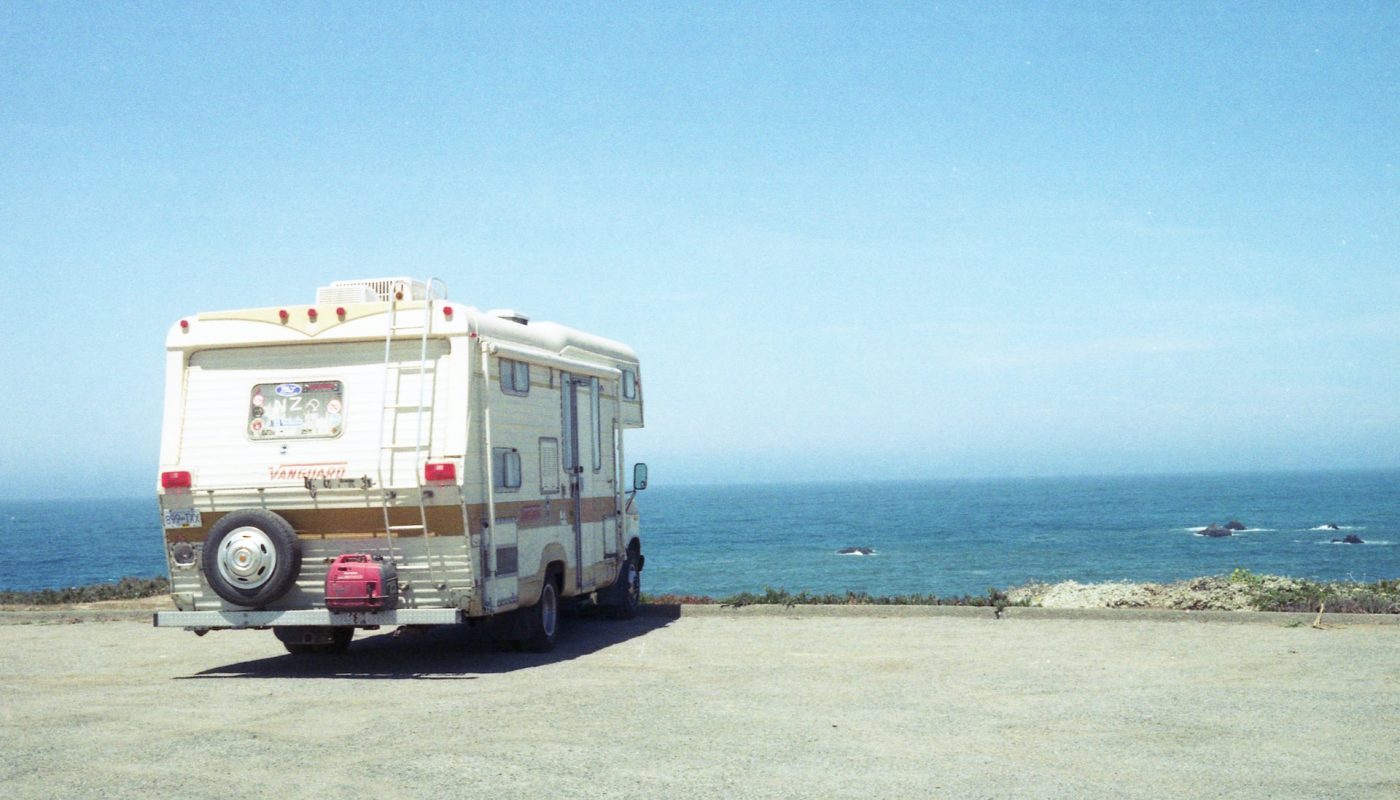RV stands for “Recreational Vehicle,” a term used to describe a variety of motor vehicles or trailers equipped with living space and amenities found in a home. Typically, RVs are used for traveling or camping, allowing individuals and families to enjoy the comforts of home while on the road. They can range from modest campervans equipped with basic facilities to luxurious motorhomes with full-sized kitchens, bathrooms, and sleeping quarters.
RVs are categorized into several different types, such as motorhomes, campervans, caravans (also known as travel trailers), fifth-wheel trailers, and popup campers. Each type offers a unique set of features and levels of mobility, depending on the needs of the traveler. For example, motorhomes are self-propelled and offer a high level of convenience and comfort, while travel trailers need to be towed by a separate vehicle but often provide more space and amenities.
The popularity of RVs has grown significantly as they have become synonymous with freedom, adventure, and the opportunity to explore the great outdoors without sacrificing the conveniences of modern living. They appeal to a broad spectrum of users, from retirees looking to tour the country to younger generations seeking weekend getaways or alternative housing options.
RV Meaning and Definition
An RV, or Recreational Vehicle, is a motor vehicle or trailer designed and equipped for living quarters used for recreational purposes. They range in size and can be as simple as a camper van or as complex as a coach-built motorhome.
Types of RVs include:
- Motorhomes (Class A, B, & C)
- Travel Trailers
- Fifth Wheel Trailers
- Campervans
- Popup Campers
- Truck Campers
They typically include living amenities such as:
- Sleeping Areas
- Bathrooms
- Kitchens
- Living Spaces
People use RVs for various purposes, such as traveling, camping, and full-time living or nomadic lifestyles. Manufacturers design these vehicles to offer the comforts of home while on the road, which is why they are increasingly popular for vacations and road trips. Recreational Vehicles provide the freedom to explore and stay in different locations with a level of self-sufficiency not possible with traditional travel methods.
Types of RVs
Recreational vehicles (RVs) come in various styles and sizes to suit different needs, preferences, and travel plans. They range from compact and easily maneuverable models to spacious and luxurious ones with a host of amenities.
Class A Motorhomes
Class A motorhomes are the largest and most luxurious of the RV types, resembling bus-like structures with ample living space. They offer full kitchens, bathrooms, and often include slide-outs to increase living area.
Class B Motorhomes (Camper Vans)
Class B motorhomes, also known as camper vans, are the smallest RV category. They are built on a van chassis and are excellent for ease of driving and fuel efficiency. Camper vans typically accommodate basic living requirements and are well-suited for solo travelers or couples.
Class C Motorhomes
Class C motorhomes strike a balance between Class A and B in size. They are recognizable by their cab-over bunk design and offer more living space than Class B, including separate sleeping quarters, which makes them ideal for families.
Travel Trailers
Travel trailers are non-motorized RVs towed by vehicles using a standard hitch. Their sizes range from small teardrop trailers to large models with multiple bedrooms. They are versatile and can be detached from the towing vehicle for independent use.
Fifth Wheel Trailers
Fifth wheel trailers require a special hitch in the bed of a truck for towing. They are known for their stability and spacious interior, with some models featuring luxury amenities comparable to Class A motorhomes.
Pop-Up Campers
Pop-up campers are collapsible RVs that are lightweight and easy to tow. They offer a more authentic camping experience with basic shelter and sleeping facilities, while still being more protected from the elements than a tent.
Truck Campers
Truck campers are units that can be mounted in the cargo area of a pickup truck. This approach to RVing provides mobility and off-road capabilities, as well as the convenience of bringing along a smaller living space.
RV Usage and Purpose
RVs, commonly known as recreational vehicles, serve distinct purposes ranging from leisure to alternative living arrangements. Individuals utilize RVs for a range of activities that include vacationing, exploring, and residing in them full-time.
Recreational Use
Recreational travelers often choose RVs for their comfort and flexibility. They allow tourists to bring the amenities of home on the road while visiting various destinations. RV parks and campgrounds are established to accommodate these vehicles, providing hookups for electricity, water, and sewage.
Full-Time Living
Some individuals opt for RVs as a permanent residence, citing the freedom to move and the reduction in living expenses. Full-timers may select stationary RV setups or might continuously travel, utilizing services like mail forwarding and mobile internet to maintain everyday life.
Travel and Tourism
RVs play a significant role in the travel and tourism industry, offering an alternative to traditional accommodations like hotels. Travelers might embark on cross-country road trips, use them for seasonal travel, or attend events and festivals where temporary lodging is required.
Key Features of RVs
Recreational vehicles (RVs) are designed to provide the comforts of a home while on the road. They combine transport and living accommodations for travel, leisure, and camping activities.
Living Quarters
RVs are equipped with various living spaces, including bedrooms, kitchens, and living areas. Sleeping spaces may range from built-in beds to convertible dinettes or sofas. Kitchens in RVs typically come with essential appliances like a refrigerator, stove, and microwave. Living areas offer seating which can include sofas, chairs, and sometimes small dining tables.
Mobility and Comfort
The chief advantage of an RV is its capability to move seamlessly from one location to another. Most RVs have efficient HVAC systems to ensure comfortable indoor temperatures regardless of the weather outside. For driving, RVs boast ergonomic driver’s stations with features such as adjustable seats, steering wheel controls, and modern navigation systems.
Built-in Utilities
RVs possess a variety of built-in utilities that facilitate self-sufficiency while traveling. They are commonly equipped with electrical systems, which include an onboard generator and external hookups. Plumbing systems in an RV consist of fresh, gray, and black water tanks. Moreover, many models feature internet and entertainment systems, ensuring constant connectivity and leisure options for occupants.
RV Construction and Design
The construction and design of a Recreational Vehicle (RV) focus on combining durability with comfort. Manufacturers prioritize the use of high-quality materials and efficient use of space to enhance the travel experience.
Materials Used
RV manufacturers typically use a combination of materials, depending on the type of RV and its intended use. For instance:
- Structure: Aluminum frames are widely used for their strength-to-weight ratio, while fiberglass composites are employed for external panels due to their durability and smooth finish.
- Insulation: Polyurethane foam and fiberglass batts are common choices for thermal and acoustic insulation.
- Interior: Woods such as plywood or medium-density fiberboard (MDF) are used for cabinetry. Surfaces are often laminated for a durable and easy-to-clean finish.
Space Optimization
Designers optimize space in RVs through multi-functional features and clever layouts. Specific strategies include:
- Furniture: Convertible furniture that serves dual purposes, such as dinette sets that transform into beds.
- Storage: Custom-built storage solutions like under-seat compartments and overhead bins make use of every available space.
- Layout: Slides-outs are a popular design feature that expands living space when the RV is parked.
Buying an RV
When purchasing an RV, the buyer must decide between new and used models, consider various factors including features and use, and carefully plan for the financial commitment involved.
New vs. Used
Pros of Buying New:
- Latest Features: A new RV comes with modern amenities and the latest technology.
- Warranty: New vehicles often have warranties that provide peace of mind.
Cons of Buying New:
- Depreciation: New RVs depreciate rapidly in the first few years of ownership.
Pros of Buying Used:
- Lower Cost: Used RVs are often significantly cheaper than new ones.
- Less Depreciation: Much of the depreciation has already occurred.
Cons of Buying Used:
- Potential Repairs: Older RVs may require more maintenance and have no warranty.
Factors to Consider
- Size and Layout: Consider the space and the floor plan. What best fits your needs – a compact camper or a spacious motorhome?
- Features: Look at the amenities offered. Do you need a basic setup or luxury features?
- Usage Frequency: How often will you use the RV? This can influence the type and quality you buy.
Costs and Budgeting
Initial Purchase Price
New RV:
| Type of RV | Average Price Range |
|---|---|
| Travel Trailer | $10,000 – $30,000 |
| Fifth Wheel | $40,000 – $100,000 |
| Motorhome | $60,000 – $500,000+ |
Used RV:
Prices vary widely based on age, condition, and type.
Ongoing Costs
- Maintenance: Budget for regular upkeep and potential repairs.
- Insurance: Costs can be lower for less expensive RVs but depend on coverage levels.
Total Budgeting: Calculate the total cost of ownership, including purchase price, maintenance, insurance, and any loan interest. Compare this to your budget to ensure affordability.
Maintenance and Upkeep
Proper maintenance and upkeep are crucial for extending the lifespan of an RV and ensuring safe journeys. This section details the fundamental practices in regular care, seasonal preparations, and techniques for repair and troubleshooting.
Regular Maintenance
Routine Checks: Owners should conduct weekly checks on tire pressure, fluid levels, brake function, and battery charge to avoid malfunctions on the road.
Cleaning: Regularly cleaning both the interior and exterior of the RV prevents long-term damage and maintains its appearance. One should also replace or clean air filters, water filters, and holding tanks to maintain good air quality and water safety.
Seasonal Preparations
Winterizing: If the RV is not in use during colder months, owners need to drain and bypass the water lines to prevent freezing. They should also add antifreeze to the plumbing system and ensure the RV is adequately insulated.
Summer Readiness: Before summer travels, checking the air conditioning system, resealing any exterior leaks and applying a UV protective coating to the exterior will help in dealing with high temperatures and sun exposure.
Repair and Troubleshooting
Diagnostic Checks: At the first sign of trouble, one should consult the RV’s manual and conduct diagnostic checks. Common issues often relate to electrical systems, appliances, and slide-outs.
Professional Help: For complex issues, such as roof repairs or engine troubles, it is advisable to seek a certified RV technician to prevent further damage and ensure repairs are properly executed.
Frequently Asked Questions
This section addresses the multiple meanings of the abbreviation “RV” in various fields, offering concise and informed clarifications.
What is the military abbreviation RV commonly used to denote?
In military jargon, “RV” stands for Rendezvous, referring to a prearranged meeting location.
In political contexts, what does the abbreviation RV represent?
Within political discourse, “RV” often signifies ‘Registered Voters’, denoting individuals who are officially registered to vote in elections.
How is the term RV interpreted within medical terminology?
In the medical field, “RV” is used to abbreviate ‘Residual Volume’, which is the amount of air remaining in the lungs after a forceful expiration.
Can you explain the meaning of RV in the context of business?
In a business environment, the abbreviation “RV” can refer to ‘Recreational Vehicle’, a type of motor vehicle or trailer equipped with living space and amenities.
What significance does RV hold within the financial sector?
When used in the financial sector, “RV” might stand for ‘Retail Value’, indicating the price at which goods are sold to the public.
How does RV apply to the realm of sports, such as volleyball?
In the context of sports like volleyball, “RV” is used to designate ‘Receiving Volley’, signifying player positions and strategies aimed at receiving the serve.



